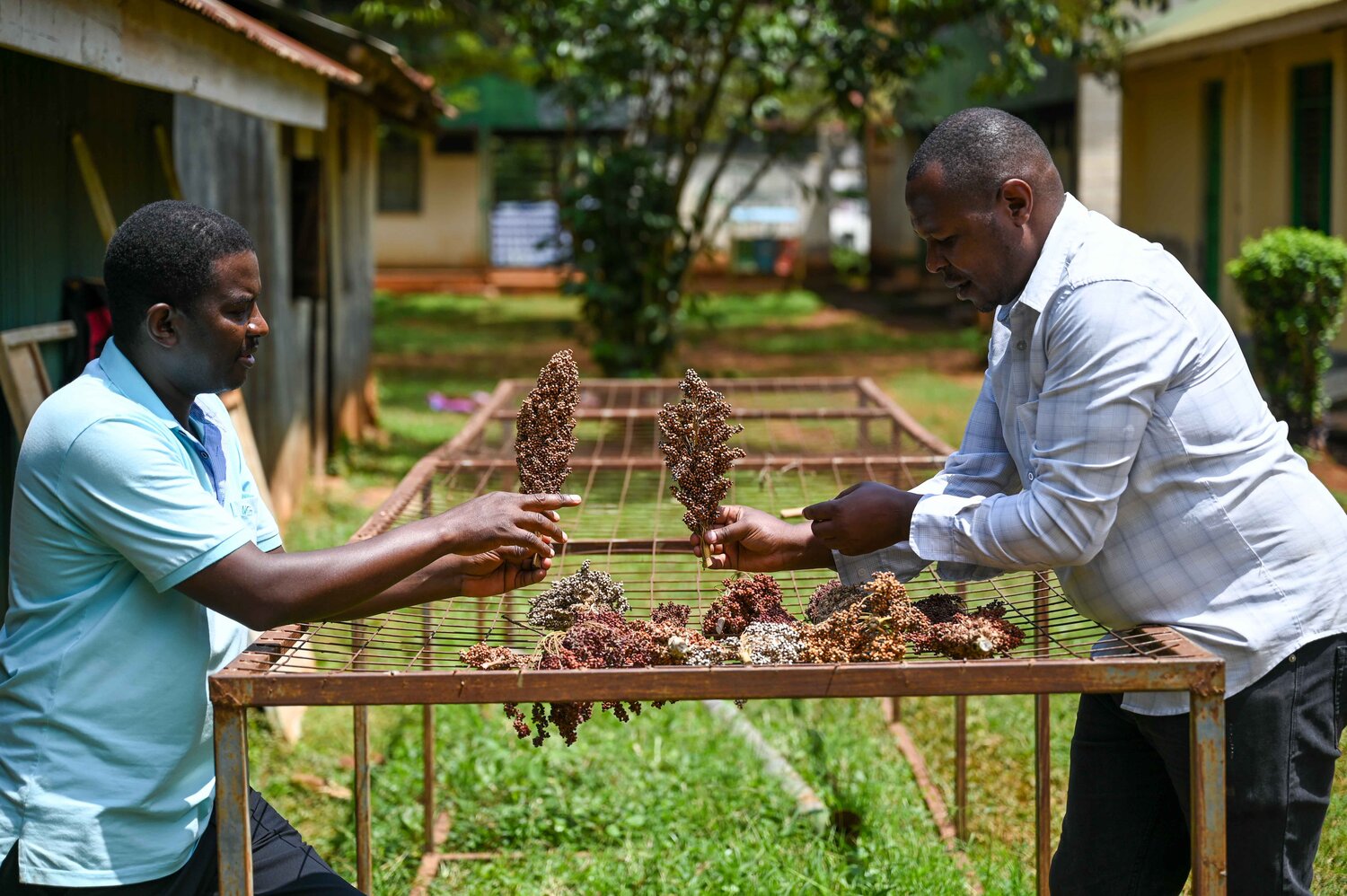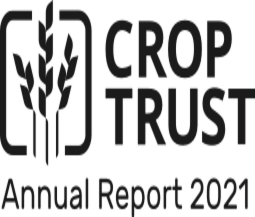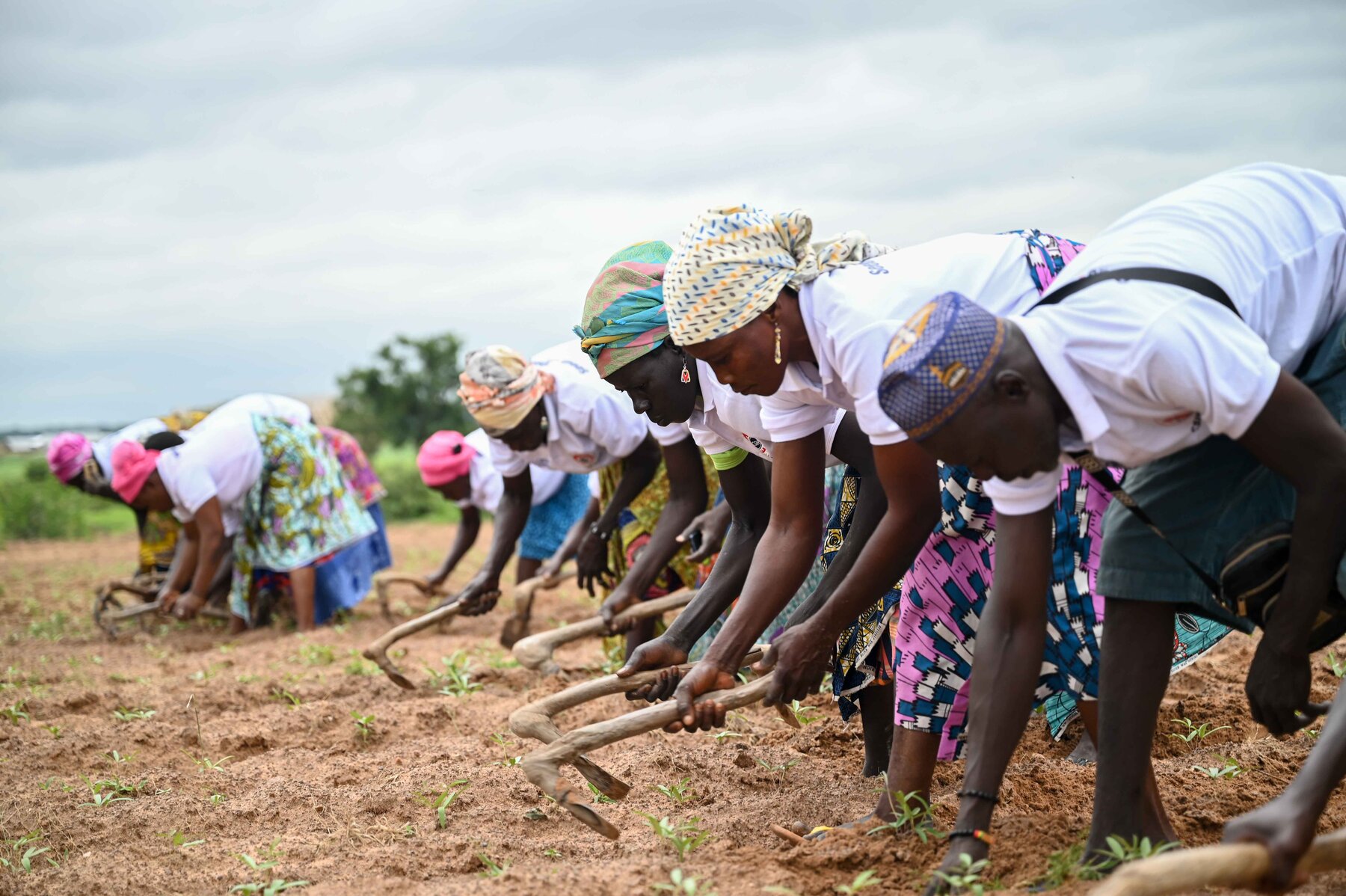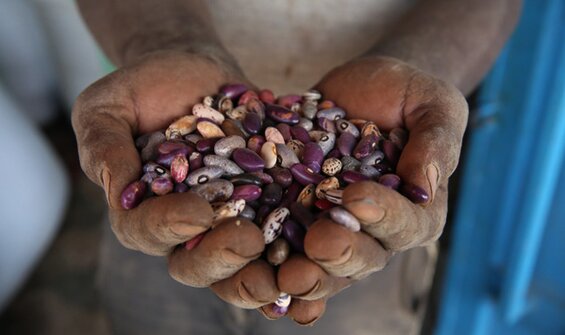Seeds for Resilience Action Grows

Peterson Wanbugu, left, and Joseph Kamani of Kenya’s Genetic Resources Research Institute (GeRRI) discuss the diversity of sorghum heads harvested from a demonstration field at the Kenya Agriculture and Livestock Research Organisation (KALRO) training center
In 2024, Seeds for Resilience worked with partners to upgrade the physical infrastructure of their genebanks. A contract was signed with a civil engineering firm in Zambia to assess each partner's facilities and develop building plans, including the refurbishment of drying rooms. In 2025, the work will be put out to tender, and then construction will start.
As part of its capacity-building component, the project held a Genebank Operations and Advanced Learning (GOAL) workshop in Lusaka, Zambia. The workshop brought together more than 30 staff from the five countries and provided separate training to partner finance teams on how to prepare, review and respond to audits. During the year, genebank staff from Ghana, Nigeria and Ethiopia also received training in cryopreservation under the guidance of the Alliance of Bioversity International and CIAT at the Laboratory of Tropical Crop Improvement at KU Leuven in Belgium.
All partners have set up the GGCE data management software and are learning how to use it in their day-to-day operations. These operations include regenerating accessions and ensuring they are safely backed up in at least one other location. The Zambia Agricultural Research Institute (ZARI) and the National Centre for Genetic Resources and Biotechnology (NACGRAB) in Nigeria sent safety duplicates to the Svalbard Global Seed Vault in 2024.
More than 5,200 accessions have been deposited by partners under Seeds for Resilience, with almost 1,500 seed samples sent to Svalbard in the reporting period.
Following an initial round of external reviews in 2019, a second round was completed in 2024. These involved expert teams visiting each country to check on progress and make recommendations about the way forward.
“This [project] was my dream of how a genebank can work directly with farmers. It's a great model because it makes sure that the materials don't just lie in the genebanks like museums,” said Peterson Wambugu, Genetic Resources Research Institute (GeRRi) in Kenya.
Since 2019, Seeds for Resilience has supported the national genebanks of Ethiopia, Ghana, Kenya, Nigeria and Zambia. Scheduled to end in 2024, it was extended to 2026. It is supported by the Federal Government of Germany (BMZ), through the German Development Bank (KfW). Discover more


